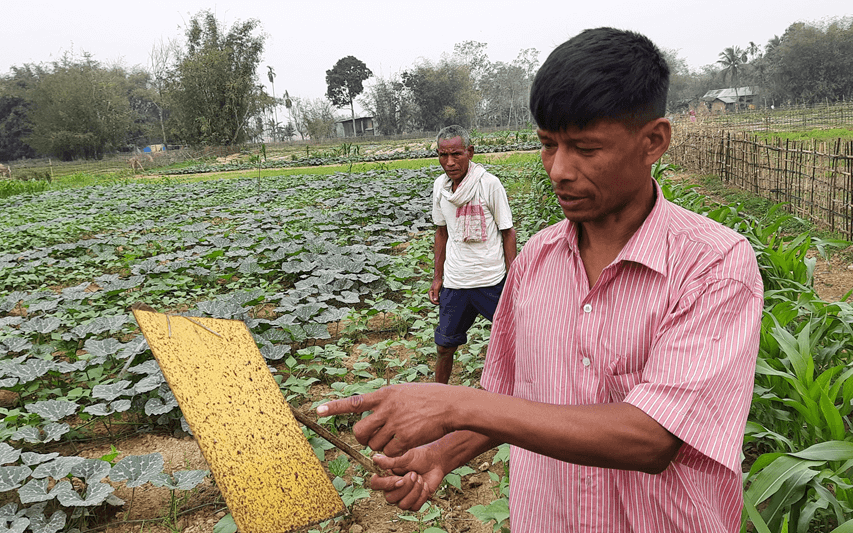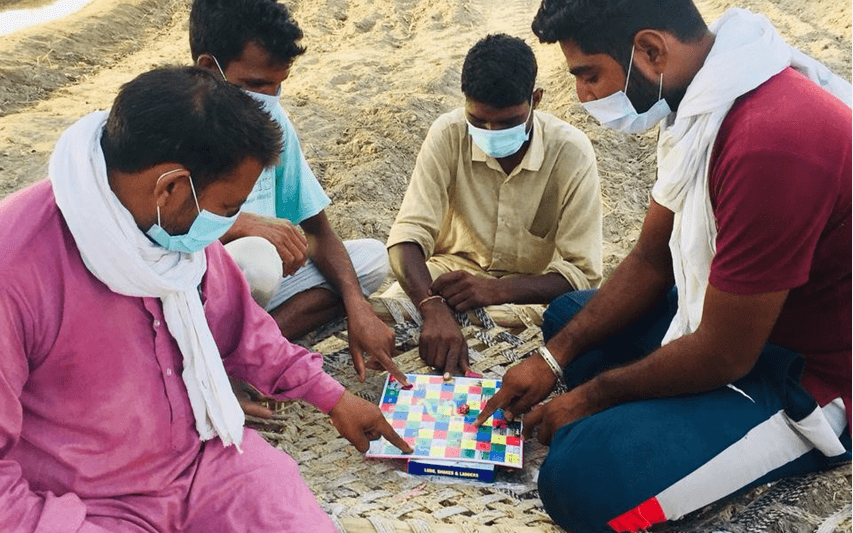Newsletter
Don't miss a thing!
We regularly provide you with the most important news, articles, topics, projects and ideas for One World – No Hunger.
Newsletter
Don't miss a thing!
We regularly provide you with the most important news, articles, topics, projects and ideas for One World – No Hunger.
Please also refer to our data protection declaration.
India

This project is aiming to digitally empower rural youth as providers of agroecological advisory in small-scale potato farming in India. We will train rural youth in agroecological principles and in delivering farm-specific advisories with the help of a mobile application. Based on updated agronomic and site-specific data, the app will enable agroecological advisory based on timely and farm-specific advisory schedules. Digitally empowered extensionists will be linked withs farmer producer organisations and other stakeholders to ensure timely supply of the appropriate inputs to the farmers and to provide the basis for up-scaling.
Why is it needed?
The agroecological transformation usually hits a roadblock, when farmers can’t get enough relevant information in good time, in particular, when implementing new practices. This project innovates in involving youth in the development and use of digital tools for their agroecology extension services. The approach taken can help reach more people faster at lower costs, youth being better at using digital tools.
What is innovative about it?
Though having the focus on potatoes, the project tries to progressively take a broader view which facilitates the shift to a more holistic and following the agroecological principles digital advisory service. The emphasis on rural youth, women, and farmers organization to provide agroecological advisory services fits the needs of the farmers that want to transition to a wider array of agroecological practices.
"Of particular interest is the pairing of rural youth and digital tools to support the scaling up agroecological information for farmers. The goal is clear and the realistic and down-to-earth description of activities during the concept phase gives confidence in a positive outcome form the project."
Challenges ahead
Among the challenges that such a project will face, one would be to include, in addition to a wider crop system, a more holistic approach in the areas of finance/credit, markets, and food systems. During the proof of concept phase most activities listed can be expected to get started with high engagement of young farmer extensionists and other consortium members whose roles and activities are very well defined.
Deutsche Welthungerhilfe e.V. (DWHH) is a private non-benefit aid organization, fighting against global hunger and for sustainable food security. DWHH is responsible for project management and monitoring and provides guidance on agroecology and advisory services.
Tene Agri Solution (Tene-Ag) is an Indian private company developing ICT-products for the farming sector that provide equal opportunities for small and large agribusinesses. Tene-Ag provides and adapts the app and runs the necessary digital infrastructure and training.
Organisation for Resource Development and Environment Rejuvenation (ORDER) is an Indian non-governmental organisation empowering and guiding rural and urban community wellbeing. ORDER promotes awareness creation on agroecological approaches, identifies youths, provides training and field monitoring.

We will adapt a hive management app (The Beekeeper’s Companion) for Lebanon with a focus on women beekeepers and combine it with a web app for extension workers to improve advisory services and monitoring of bee health.

This project explores an innovative advisory model for agroecological vegetable farming based on farmer producer companies in India.

This project builds ground for the agroecological transformation of smallholder farming in Senegal following a holistic bottom-up approach.

This project aims at developing a concept for the transmission (and repetition) of agroecological practices in a lively and conducive environment for smallholder farming families in India and Tanzania.